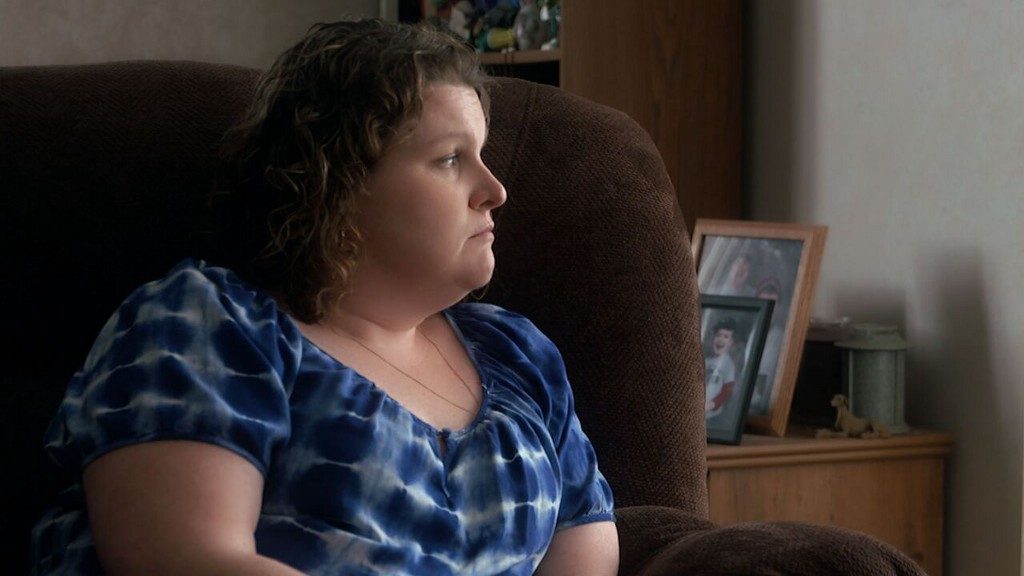Guest Post by Civia Tamarkin
As a veteran journalist and documentary filmmaker, much of my focus has been criminal and social justice issues. My investigations led to the releases of a young man wrongfully convicted of rape and another who was on death row for a murder he did not commit. I covered child trafficking, exposed the smuggling of disposable illegal workers by poultry companies, and in the film “Jerabek,” chronicled the lack of preparedness of a U.S. army platoon caught in one of the first organized insurgent offensives in Ramadi, Iraq. My documentary “On the Basis of Sex: The Battle of Title IX” traced the history and continuing controversy over gender equity, revealing Republican attempts to roll back some of the provisions that guaranteed women equal participation in college sports. Given my work history, it’s unsurprising that I decided to tackle reproductive rights — and the immense threat they are under — in my newest project, “Birthright: A War Story.”
Three years ago, while I was developing a series on America’s mental health crisis, the Supreme Court handed down the Hobby Lobby decision. I was shocked that the court would allow a company to deny employees insurance coverage for birth control based on the owner’s religious beliefs.
Like so many other women of my generation who had taken to the streets to march and protest until we secured the constitutional protection of our reproductive rights, I was astonished by the increasing number of restrictions in the courts and state legislatures that were nibbling away at all our hard-fought gains. What surprised me most was the relative lack of public outcry, demonstrations, and boycotts. Where were the women?
I decided to make a documentary that would serve as a wake-up call to a young generation of women, many of whom seemed unaware of the threat to their privacy. I set out to examine how and why opponents of women’s reproductive rights had made such inroads. What was the strategy that led to their success? There was a need to connect the dots which I had always tried to do as a journalist. There was a need to put the Hobby Lobby decision in a larger context and see it as part of a spectrum in the fight for reproductive justice.
I did not want to do another abortion story. I discovered that the singular focus on abortion had obscured the looming public health and human rights crises that were the fallout from the abortion war. Women were being jailed, forced to undergo medical procedures without consent, and put at risk of dying as this radical movement tightened its grip across the country. I wanted to change the nomenclature and reframe the issues through a different lens to tell the story of the assault on women’s bodily autonomy, bodily integrity, and medical decision-making.
I expected that women’s advocates, and especially reproductive health advocates, would jump aboard the project to help us find cases that would illustrate the issues. I thought that within a few months we would have an abundance of cases from which to choose. Instead, we encountered resistance. So many of the women who were victimized by the restrictive laws of this radical movement were too afraid or too ashamed to recount what happened to them.
We began filming on the heels of the backlash against Planned Parenthood that was sparked by fraudulent videos and false allegations of fetal remains being sold. The unwarranted attack sent shockwaves through the reproductive healthcare community. The Congressional inquiry led by Tennessee Republican Marsha Blackburn had the aura of the 1950s McCarthy hearings. Doctors and clinicians were fearful of losing their jobs, being ostracized, or even worse, being harmed if they “went public.” Meanwhile, prominent people in the right to life movement willingly discussed the evolution of their winning strategy.
As the tension rose, raising money actually became easier. With some initial seed money from individual contributors who recognized the timeliness of the film, we put together a pitch trailer. Then, through word of mouth, we were fortunate to find an angel investor committed to promoting the health of women and girls.
Filming and editing through the 2016 election campaign, we recognized that regardless of who won the presidency, this film would still be significant because the incremental erosion of women’s healthcare was happening on a grassroots level state by state. With Donald Trump’s win, the blows are now hammered top down.
Our hope is this film will ignite action and open dialogue so people understand that regardless of their views on abortion or political leanings, every woman capable of becoming pregnant is at risk.
“Birthright: A War Story” opens in LA July 28.
https://medium.com/media/4200d4b008e4152e77c87248e2e4dea4/href
Civia Tamarkin is an award-winning investigative journalist, documentary filmmaker, and former television news executive. She has produced independent and cable documentaries as well as developed programming content, models, and strategies for cable, internet, and digital global platforms. Tamarkin formerly was a CNN executive and Executive Producer of CNN’s Emmy Award-winning weekly news magazine show “CNN & Time.”






